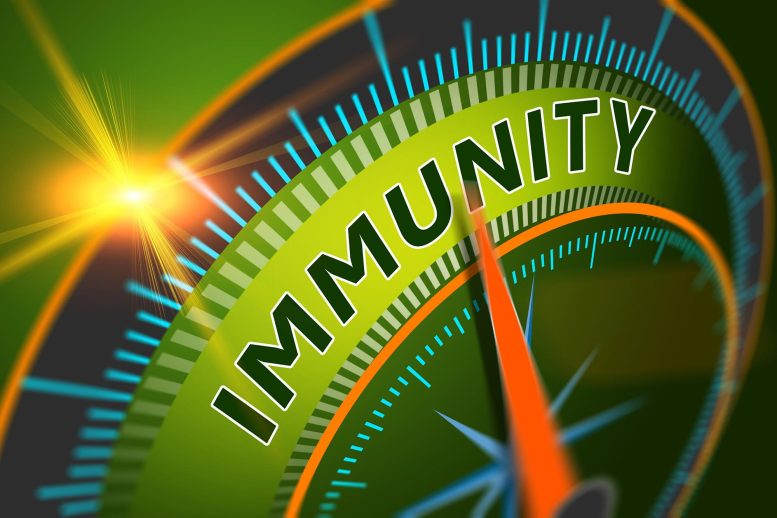
A new study from researchers at Oregon Health & Science University suggests that immunity to COVID-19 becomes stronger with increasing time between vaccination and infection. These findings have important implications for vaccine recommendations as the pandemic moves towards becoming a constant presence.
Study suggests people who have had COVID-19 benefit from vaccination, even if they’ve delayed it.
Immunity from COVID-19 appears to gather strength with more time between vaccination and infection, a new laboratory study from researchers at Oregon Health & Science University suggests. The findings carry implications for vaccine recommendations as the pandemic transitions to an endemic state.
Researchers measured the antibody response in blood samples for a group of people who gained so-called “hybrid immunity” through two means: either vaccination followed by a breakthrough infection, or by getting vaccinated after contracting COVID-19. They measured the immune response in blood samples of 96 generally healthy OHSU employees and found that the immune response was uniformly stronger the longer the time period between vaccination and infection. The longest interval measured was 404 days.
Their findings suggest that vaccine boosters should be spaced no more frequently than a year apart, at least among healthy people.
“Longer intervals between natural infection and vaccination appear to strengthen immune response for otherwise healthy people,” said co-senior author Fikadu Tafesse, Ph.D., associate professor of molecular microbiology and immunology in the OHSU School of Medicine.
The study came just before an advisory panel for the Food and Drug Administration (FDA) met on Thursday, January 26, to consider the nation’s COVID-19 vaccine strategy going forward.
Published in the Journal for Clinical Investigation Insight, the new research is the latest in a series of laboratory discoveries by OHSU scientists revealing a pattern of strengthened immune response through hybrid immunity. Their findings suggest that the magnitude, potency, and breadth of hybrid immune response all increased with a longer time period between exposure to the virus — whether through vaccination or natural infection.
This likely is related to the body’s immune response maturing over time, said co-senior author Marcel Curlin, M.D., associate professor of medicine (infectious diseases) in the OHSU School of Medicine and medical director of OHSU Occupational Health.
“The immune system is learning,” Curlin said. “If you’re going to amplify a response, what this study tells us is that you might want to boost that response after a longer period of learning rather than early after exposure.”
Further, the research team found that it didn’t matter whether someone developed hybrid immunity by getting vaccinated after contracting COVID-19 or after a breakthrough infection following vaccination. Both groups developed an equally potent immune response.
The findings suggest long-lasting potency of so-called “memory cells,” the B cells that recognize an invading virus and generate protein antibodies to neutralize the virus and its many variants. The authors write that an ever-growing pool of people who have contracted the SARS-CoV-2 virus stand to benefit from vaccination, even if they’ve delayed it until now.
Relying on natural infection alone is a bad idea, “given the risks of severe illness, long-term complications, and death,” the authors write.
The researchers say the findings are the latest to point toward the virus evolving to an endemic state.
“Our results point to a future where inevitable vaccine breakthrough infections would be expected to help build a reservoir of population-level immunity that can help blunt future waves and reduce the opportunity for further viral evolution,” they write.
The researchers cautioned that the immune response was measured in relatively healthy people, and boosters may be advisable on a more frequent basis among vulnerable people who are older or are immunocompromised.
Reference: “An extended interval between vaccination and infection enhances hybrid immunity against SARS-CoV-2 variants” by Timothy A. Bates, Hans C. Leier, Savannah K. McBride, Devin Schoen,2 Zoe L. Lyski, David D. Xthona Lee, William B. Messer, Marcel E. Curlin and Fikadu G. Tafesse, 26 January 2023, JCI Insight.
DOI: 10.1172/jci.insight.165265
Funding for this study was supported by the M.J. Murdock Charitable Trust; the OHSU Foundation; the National Institutes of Health training grant T32HL083808; NIH grant R01AI145835; and a grant from the OHSU Innovates IDEA fund. The content is solely the responsibility of the authors and does not necessarily represent the official views of the NIH.


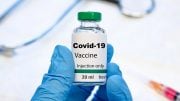



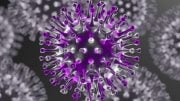
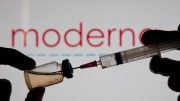
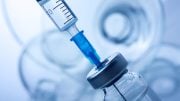
Good God. “Our results point to a future where inevitable vaccine breakthrough infections would be expected…” is dystopian. It’s not a future we want, where a disease continually infects anyone vaccinated against it, who continue to spread it. We want the past, where we were vaccinated and then didn’t get mumps, polio, or diphtheria, and the disease stopped spreading. Vaccines ended smallpox everywhere, but everyone I know was vaccinated and then got sick with COVID-19 again anyway. There wasn’t ‘good news’ reporting that our vaccinated immune responses would be even more anti-polio after we get polio.
Not to mention previous reporting that even after 3 shots, you’re getting weeks worth of protection. Check out the scitechdaily article:
covid-19-third-dose-vaccine-protection-against-hospitalization-wanes-after-3-months